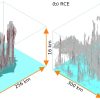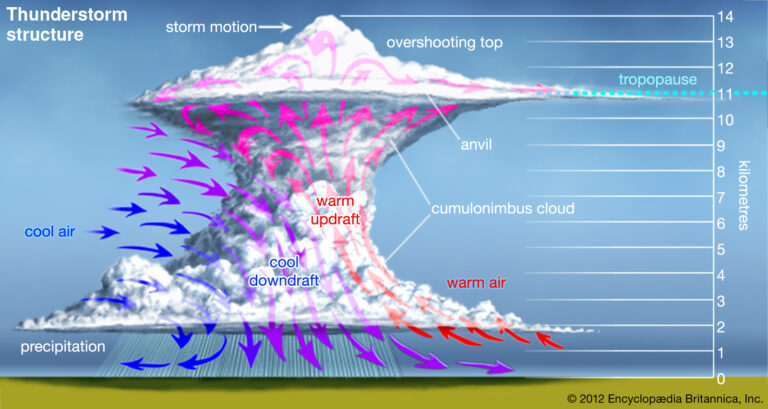In the atmospheric sciences, convection is defined as any movement resulting from the action of gravity on an unstable vertical distribution of the air mass. In this sense, convection is driven by
by buoyancy forces resulting from static instability.Convection can be classified as shallow (dry or wet) or deep (precipitation).
The AERIS cluster has a number of research projects studying convection
which you can find here :

Scientific context C²OMODO (Convective Core Observations through MicrOwave Derivatives in the trOpics) is a CNES space project, a tandem of radiometers that will be launched in March 2030, as part […]

The ERC1 funded MAESTRO project aims to answer this question by addressing the following goals: As part of this project, an airborne field campaign will be organized to collect the observations needed to […]

HyMeX aims at a better understanding, quantification and modelling of the hydrological cycle in the Mediterranean, with emphasis on the predictability and evolution of extreme weather events, inter-annual to decadal […]

Abstract The first overarching objective of the Clouds-Atmospheric Dynamics–Dust Interactions in West Africa (CADDIWA) airborne campaign is to assess dust aerosol related effects, namely the direct radiative effect (DRE), the semi-direct radiative […]

EUREC4A, the Field Study, is an international initiative in support of the World Climate Research Programme’s Grand Science Challenge on Clouds, Circulation and Climate Sensitivity. EUREC4A will take place between […]

Megha-Tropiques is a space mission jointly managed by the space agencies CNES and ISRO. This mission is designed to study the convective systems of the atmosphere and more particularly the analysis of the water cycle through the transport and distribution of water vapor, the life cycle of convective systems and energy exchanges in the equatorial belt. The tropical zones are those where the most important energy exchanges occur: radiative exchanges, latent heat exchanges, transport of constituents and energy through dynamic processes. The challenge is therefore to increase knowledge of hydrological and energy processes in the tropics and their influence on the global circulation of the atmosphere, that the oceans, and climatic variations.

